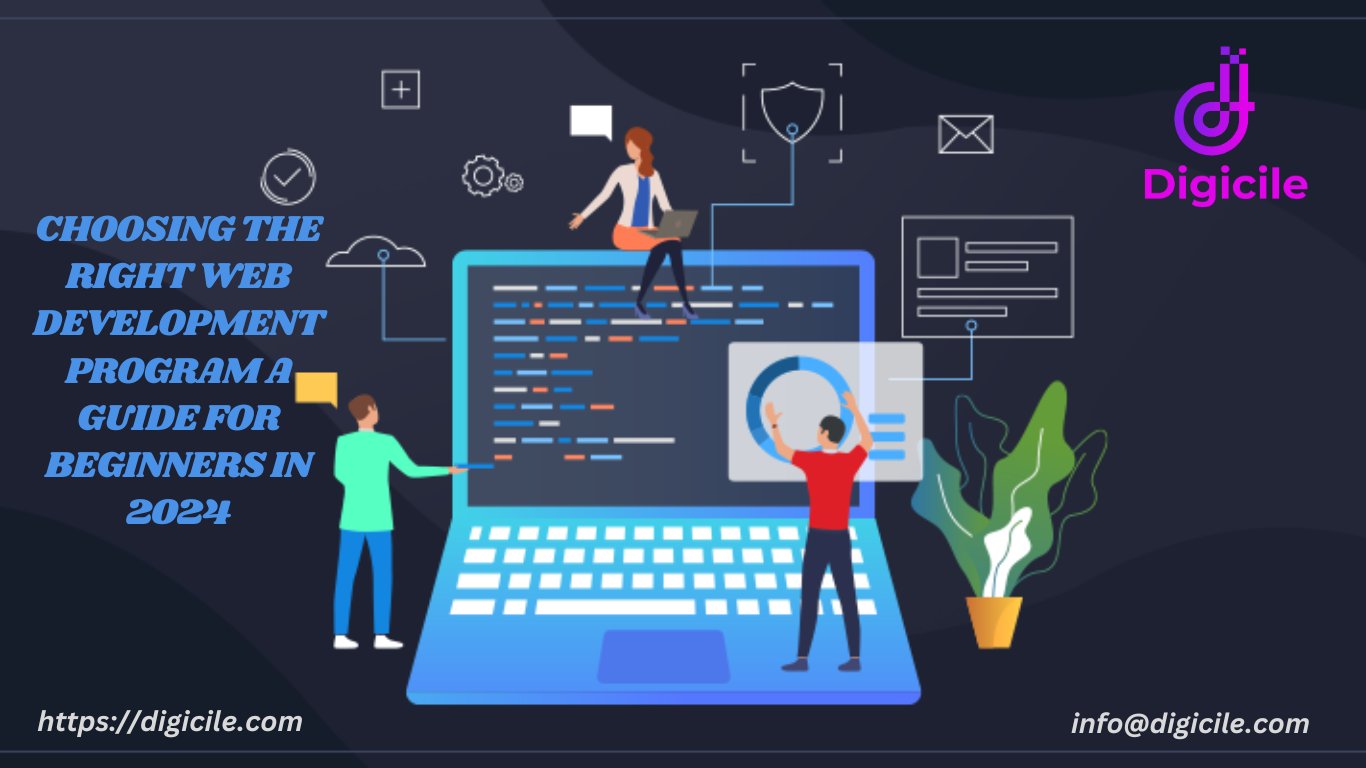Embarking on a journey into web development can be both exciting and overwhelming, especially with the multitude of programs available today. For beginners, choosing the right web development program is crucial to ensure a solid foundation and set oneself up for success. In 2024, the landscape of web development education continues to evolve, offering a range of options to suit various learning styles and career goals. This guide will help you navigate the choices and find the best web dev program to kickstart your career.
Understanding Your Learning Goals
Before diving into the specifics of different web development programs, it’s essential to clarify your learning goals. Consider the following questions:
- What are your career aspirations? Do you want to become a front end developer, back end developer, or full stack developer?
- How much time can you dedicate? Are you looking for a part-time program, a full-time bootcamp, or self-paced learning?
- What is your learning style? Do you prefer hands-on projects, structured coursework, or interactive tutorials?
Types of Web Development Programs
Coding Bootcamps
Coding bootcamps are intensive, short-term programs designed to teach you the skills needed for a career in web development in a relatively short period, typically 3 to 6 months.
- Pros: Accelerated learning, practical experience, strong job placement support.
- Cons: High cost, fast pace may be overwhelming, less depth in some topics.
Popular Bootcamps:
- General Assembly: Offers a range of web development courses with a focus on practical skills.
- Le Wagon: Known for its global presence and comprehensive full-stack program.
- App Academy: Offers a rigorous curriculum with a focus on hands-on coding and job placement.
Online Courses and Platforms
Online courses and platforms provide flexible learning options and can be a good fit for self-motivated learners who prefer a more gradual pace.
- Pros: Flexibility, often more affordable, wide range of topics.
- Cons: Less structure, can require self-discipline, may lack personalized support.
Popular Platforms:
- Udemy: Offers a variety of web development courses on specific technologies and skills.
- Coursera: Provides courses from universities and institutions, including specializations and certifications.
- freeCodeCamp: Offers a free, comprehensive curriculum covering web development fundamentals.
University Degree Programs
University degree programs offer a formal education in web development, often as part of a broader computer science or information technology degree.
- Pros: In-depth knowledge, recognized qualifications, broader educational experience.
- Cons: Longer duration, higher cost, may be less focused on practical skills.
Notable Programs:
- University of California, Berkeley: Offers a Bachelor’s degree in Computer Science with web development electives.
- MIT: Provides various courses related to web development within its computer science programs.
Bootcamp-Style Degrees
Some universities now offer bootcamp-style degree programs, which combine the intensive nature of bootcamps with the formal structure of a degree.
- Pros: Combines intensive training with a degree qualification, strong career support.
- Cons: Can be expensive, may be intensive.
Notable Examples:
- University of Washington’s Professional & Continuing Education: Offers a full-stack web development program with a degree component.
- University of Denver: Provides a fast-track web development degree with a focus on industry skills.
Key Factors to Consider
Curriculum and Content
Examine the curriculum to ensure it covers the skills you want to learn. Look for programs that include:
- Fundamentals: HTML, CSS, JavaScript.
- Advanced Topics: Frameworks (React, Angular, Vue), back end technologies (Node.js, databases).
- Real-World Projects: Hands-on experience through projects and internships.
Instructor Quality
The expertise of instructors can significantly impact your learning experience. Look for programs with:
- Experienced Instructors: Industry professionals with practical experience.
- Support and Feedback: Regular feedback and support to help you improve.
Job Placement and Career Support
Strong job placement and career support services can be crucial in transitioning from learning to working. Evaluate:
- Career Services: Resume building, interview preparation, job placement assistance.
- Networking Opportunities: Access to industry events, meetups, and employer connections.
Flexibility and Format
Choose a program that fits your schedule and learning preferences:
- Full-Time vs. Part-Time: Decide between intensive full-time programs or more flexible part-time options.
- Online vs. In-Person: Consider whether you prefer online learning or in-person classes.
Conclusion
Choosing the right web development program is a critical step in starting your journey in web development. By understanding your goals, evaluating different program types, and considering factors such as curriculum, instructor quality, and career support, you can find a program that aligns with your needs and sets you up for success. Whether you opt for a coding bootcamp, an online course, a university degree, or a bootcamp-style degree, the key is to select a program that provides a solid foundation and practical experience in web development. Embrace the learning process, stay committed, and you’ll be well on your way to a successful career in web development.






